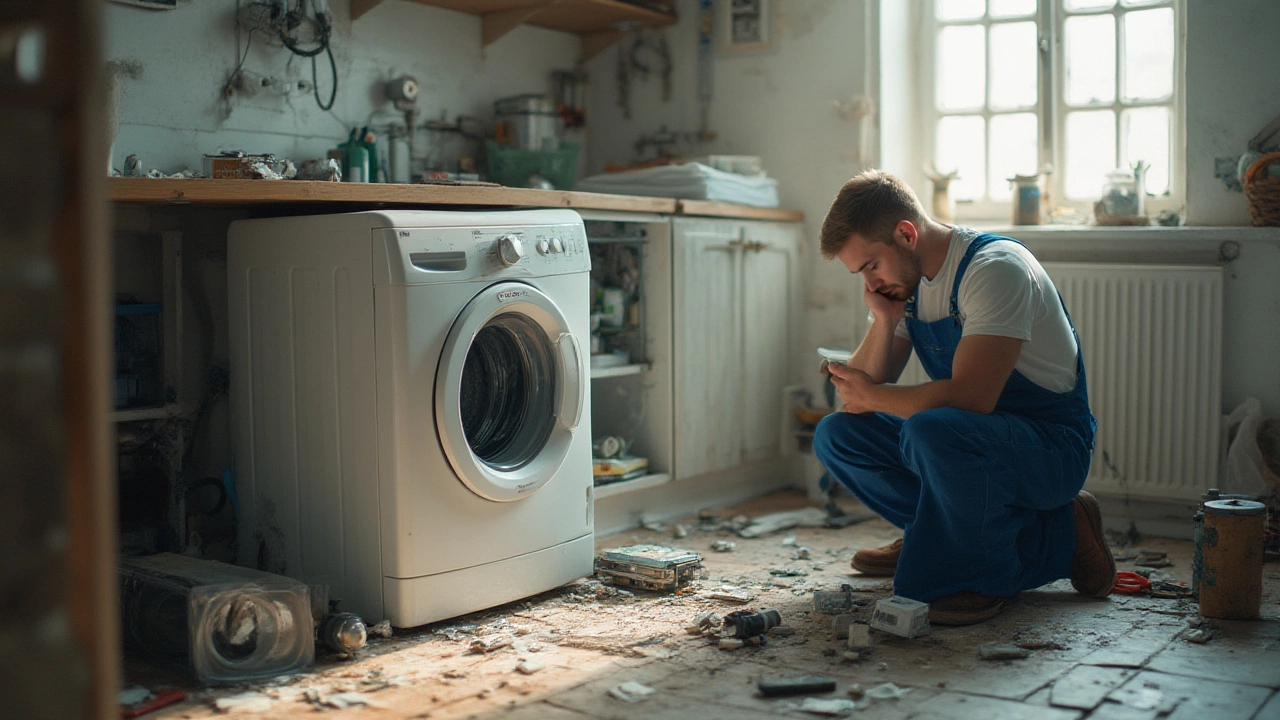
Discover the real costliest washing machine replacement parts and why they matter. Learn how to identify failing parts, repair tips, and cost-saving advice.
Ever looked at a repair quote and thought, "That’s too much?" You’re not alone. Most homeowners wonder how much a fix should really cost and whether it’s worth the money. Below you’ll get the real‑world figures for the most common appliances, plus the key factors that push a price up or down.
First off, price isn’t just about the part you need. Labor, travel time, and the age of the appliance all matter. A brand‑new fridge with a single sealed‑system issue will usually be cheaper to fix than a 12‑year‑old model that’s seen several breakdowns. Technicians often charge a call‑out fee (usually £40‑£60) that covers the trip and basic diagnosis. If they have to order a part, expect the cost to rise by the part price plus a small markup.
Another hidden cost is the complexity of the job. Replacing a dishwasher’s pump is a quick 1‑hour task, while fixing a boiler’s heat exchanger can take several hours and may need specialist tools. That’s why you’ll see repair estimates ranging from £70 for a simple fan fix to over £500 for a major boiler overhaul.
When you get a quote, ask yourself three simple questions:
If the answer is ‘yes’ to all three, fixing it usually makes sense. For example, a 4‑year‑old dishwasher with a £120 pump replacement will likely run smoothly for many more years. But a 10‑year‑old stove needing a £300 coil swap might be better off replaced, especially if energy efficiency has improved since you bought it.
Energy‑saving models can also tip the scales. An old electric hob that draws a lot of power may cost more to run than a newer, low‑watts version. Even if the repair itself isn’t huge, the ongoing electricity bill might be.
Here are typical repair price ranges you’ll see across the most common items:
These numbers are averages for South Shields and nearby areas. Your exact quote may vary based on brand, part availability, and the technician’s experience.
To keep costs down, schedule regular servicing. A yearly boiler service, for instance, can catch small faults before they become expensive breakdowns. Same goes for washing machines – cleaning the filter and checking hoses can prevent costly motor repairs.
Finally, always ask for a written breakdown before work starts. Knowing exactly what you’re paying for helps avoid surprise charges and lets you compare offers if you shop around.
Bottom line: repair costs are predictable once you understand the variables. Use the age, expected lifespan extension, and price‑to‑replace ratio as your guide, and you’ll make smart decisions that keep your home running without breaking the bank.

Discover the real costliest washing machine replacement parts and why they matter. Learn how to identify failing parts, repair tips, and cost-saving advice.

Wondering if repairing your 7-year-old fridge freezer makes sense? This article breaks down what you should consider before calling a repair guy. You'll get tips about checking energy efficiency, common repair costs, and how to spot signs your fridge is on its last legs. Find out when fixing saves money—and when it’ll just keep costing you more. Get practical steps to help you decide fast and avoid big future headaches.

Dishwashers are essential but face wear and tear over time. Deciding whether to repair or replace a malfunctioning dishwasher can be tricky. This article explores the factors like costs, age, and efficiency of the appliance to consider during the decision-making process. It offers valuable tips for maintaining your dishwasher to avoid frequent repairs and enhance longevity.